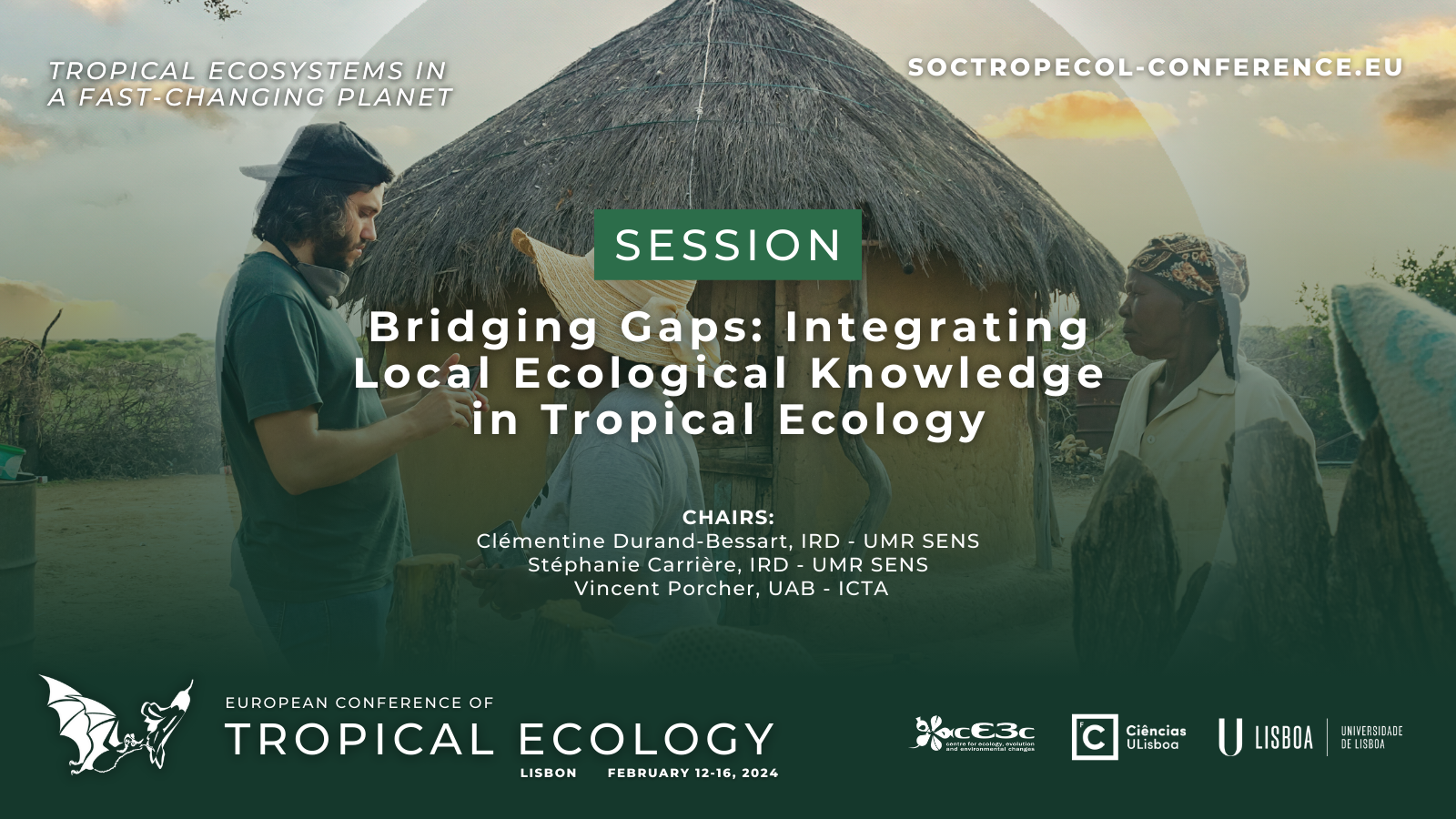[
Close window ]
Bridging Gaps: Integrating Local Ecological Knowledge in Tropical Ecology
Short title: The place of ethnoecology in tropical ecology
Chairs: Clémentine Durand-Bessart, Stéphanie Carrière, Vincent Porcher
Contact: clementine.durand-bessart@ird.fr
Tropical ecosystems face unprecedented challenges, such as deforestation, defaunation and climate change. To address these, an in-depth understanding of these ecosystems is needed to provide decision-makers with the best possible guidance. However, the accumulation of scientific knowledge is currently hampered by the rapid destruction of these ecosystems, which stresses the need to develop new approaches and collaboration across scientific fields and local knowledge holders to collect this data quickly. The Intergovernmental Science-Policy Platform on Biodiversity and Ecosystem Services (IPBES) alerted on the necessity of paradigm shifts while recognizing the crucial need to involve local people in biological diversity assessments and conventions. This local ecological knowledge (LEK) encompasses a nuanced understanding of plant and animal communities, through resource distribution and ecosystem dynamics, often complementing what can be captured through traditional scientific methods alone. These endeavours to involve LEK in ecology research are supported by a growing bulk of literature examining local people's contributions to global ecological change detection, frugivory networks and biodiversity conservation strategies. In this line, this session aims to encourage a dialogue among researchers, practitioners, and local communities to foster mutual understanding and collaboration. By acknowledging and integrating LEK, we can enhance the scientific foundation of tropical ecology, strengthen conservation efforts, and contribute to the sustainable management of these invaluable ecosystems.
Download the picture corresponding to your session for posting on social media.

